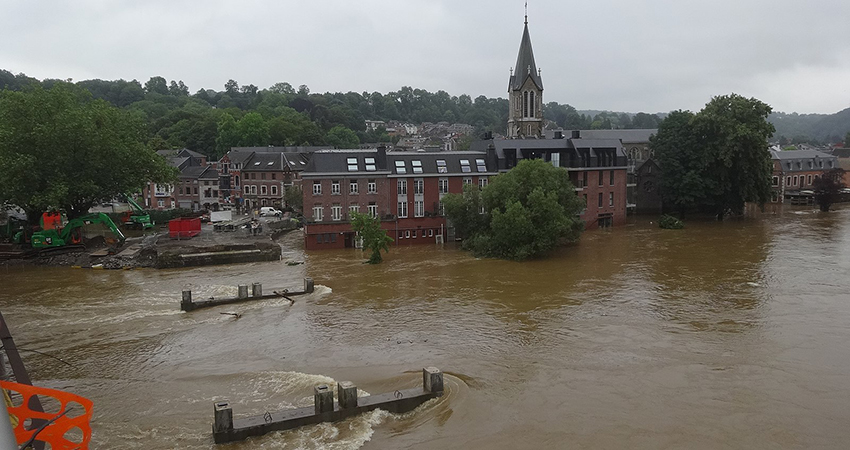Commission warns six Member States for failures to update flood risk maps

-
 Fergal MacErlean
Fergal MacErlean
Share article:
This year’s floods in Bulgaria, as well as the catastrophic floods in Germany and Belgium in July 2021, demonstrate the ever-increasing importance of assessing flood risks in the light of climate change impacts. The European Commission made the above statement on 29 September as it detailed infringements by Bulgaria, Cyprus, Greece, Lithuania, Romania and Slovakia for failing to provide updated flood hazard maps and flood risk maps as required by the Floods Directive.
According to the statement all Member States were required to report on the updates they made to their first flood hazard maps and flood risk maps in March 2020. The objective is to keep the maps (required from 2013) fit for purpose and reduce the adverse consequences of floods for human health, the environment, cultural heritage and economic activity. Flood hazard maps should cover the geographical areas which could be flooded according to different scenarios; the flood risk maps should show the potential adverse consequences associated with floods under those scenarios.
Infringement
The Commission sent letters of formal notice in February 2022 to relevant Member States as no information on the process was received. As there was no further progress the executive issued reasoned opinions to all six Member States at the end of September. Failure to take the necessary measures could result in a referral by the Commission to the Court of Justice of the European Union.
Floods in Bulgaria
Floods in central Bulgaria in early September caused rivers and streams to overflow flooding several villages in Plovdiv Province. The flooding was reportedly 1.5 to two meter’s deep in some areas. More than 300 houses were affected with infrastructural damage worth more than 30 million euros in the town of Karlovo. Emil Kabaivanov, Mayor of the Karlovo, said to Balkan Insight: “The public infrastructure will need to be reconstructed gradually and this will take nearly two years”.
Climate change
Record rainfall over two days that triggered deadly floods in Germany and Belgium in July 2021 was made between approximately one and nine times more likely by climate change, according to a peer-reviewed study by the World Weather Attribution (WWA) group. The flooding resulted in more than 184 fatalities in Germany and 38 in Belgium and considerable damage to infrastructure. “These floods have shown us that even developed countries are not safe from severe impacts of extreme weather that we have seen and known to get worse with climate change,” climate science expert and WWA co-lead Friederike Otto said in a statement in August 2021. “This is an urgent global challenge and we need to step up to it. The science is clear and has been for years,” Otto added.
Best practices
Almost twenty years ago, following the initiative of Water Directors of the European Union, a core group led by the Netherlands and France prepared a guide on Best Practices on Flood Prevention, Protection and Mitigation. This guide, published four years before the Flood Directive was endorsed in 2007, made clear reference to the identification and the mapping of flood hazards and areas of high-risk and the implementation of this information into spatial planning, risk and emergency management or in overall awareness building of the population. It advocated that flood risk maps should include the worst-case scenario.













